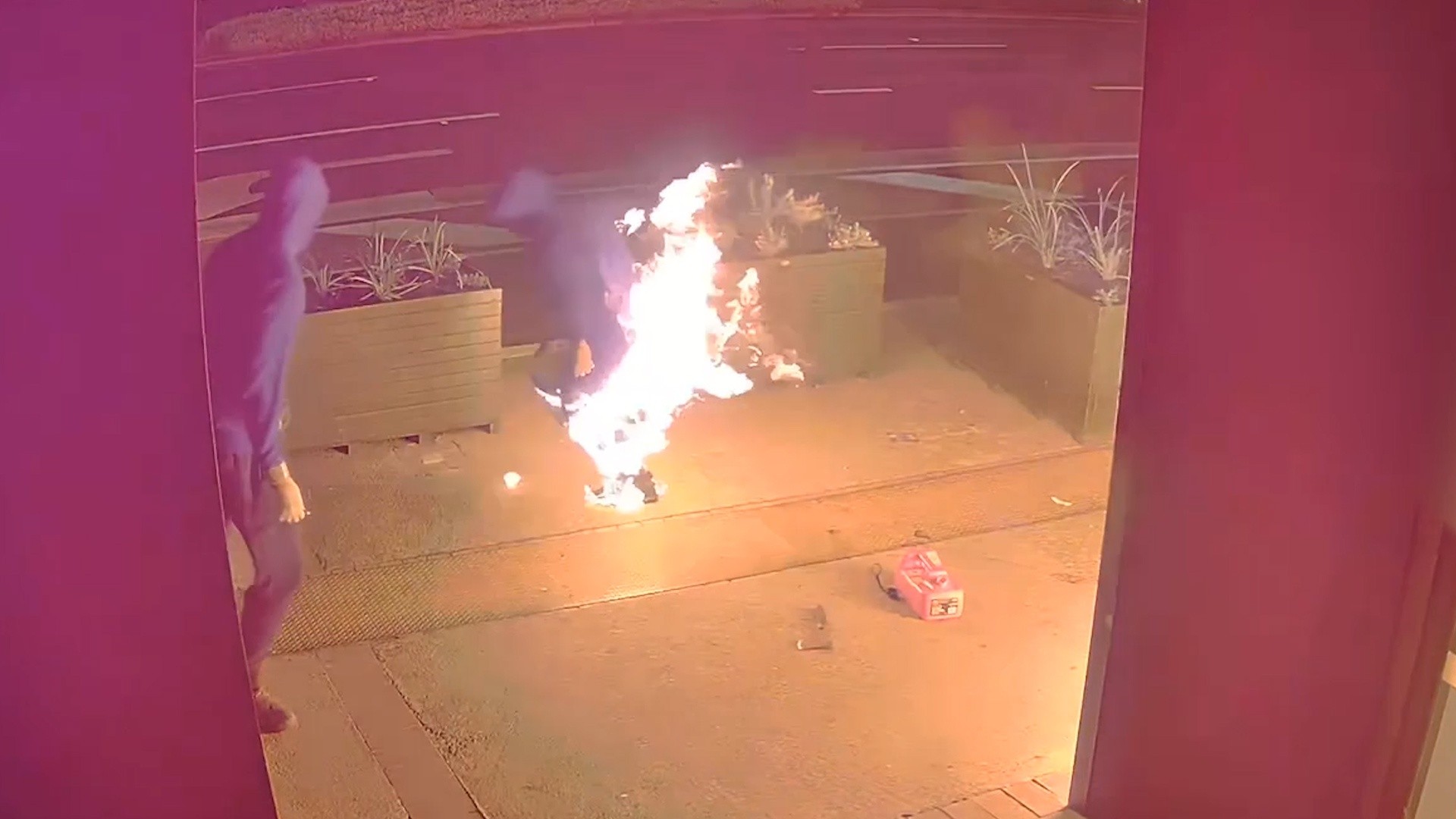
A woman was arrested this week in the death of her 5-year-old foster son after he was found unresponsive in a hot car in Omaha, Nebraska.
Omaha police said Juanita Pinon, 40, was charged with one count of child abuse by neglect, resulting in death, after the boy was discovered inside the vehicle just after 5 p.m. local time Wednesday.
The car had been in a parking lot outside of the beauty salon where Pinon works, police spokesman Chris Gordon told NBC News, adding that the child had been left unattended in the car for approximately 7 hours while Pinon was working. He was rushed to a hospital, where he was pronounced dead, police said.
Pinon did not answer questions from police about whether she knowingly left the boy in the car or whether it was accidental, Gordon said.
Get Tri-state area news delivered to your inbox. Sign up for NBC New York's News Headlines newsletter.
The Nebraska Department of Health and Human Services, which oversees foster care, did not immediately respond to an inquiry about Pinon’s history as a foster mother. She is currently being held by the Douglas County Department of Corrections.
A postmortem exam was being conducted to determine whether the boy died of heat exposure or from another cause, Gordon said Friday.
If he died from the heat, that would make him at least the 10th child to die in a hot car in 2024, according to KidsAndCars.org, a nonprofit group dedicated to saving the lives of children in and around vehicles.
U.S. & World
In Omaha on Wednesday, the temperature hit 89 degrees F. But the temperature inside cars can be much hotter than outside, said Janette Fennell, founder and president of KidsAndCars.org.
“Think about the temperature inside a vehicle like a greenhouse. You’ve got a vehicle, there’s a lot of glass in it, and then, depending on the angle you are to the sun, it heats up very quickly,” she said, adding that cracking windows open isn’t enough to cool a car. “We’ve actually documented deaths where the temperatures outside were in the low 60s.”
KidsAndCars.org has found that since 1990, nearly 1,100 kids age 14 or younger have died in hot cars, the vast majority of them ages 3 or under. Most of the deaths happened when parents or other caregivers unknowingly left their child in the vehicle, according to the group’s statistics.
In such cases, research has shown that drivers didn’t truly forget about their children. Rather, they went on autopilot as they headed to work or another familiar destination, sometimes creating a false memory of dropping the child off at day care or with another caregiver, Fennell said. Changes in routines — such as a different parent than usual dropping the baby off at the child care provider — tend to be a factor in such deaths.
Other times, Fennell said, hot car deaths result from children climbing into vehicles without adults noticing, or from parents who knowingly leave children in cars while they go to run an errand, which ends up taking longer than expected.
“Some people truly don’t understand, No. 1, how dangerous it is, and No. 2, how quickly a car heats up,” she said, adding that 80% of the increase in inside temperatures can occur in the first 10 minutes, depending on factors such as whether the car is parked in the sun or the shade. “Everyone thinks, ‘I’ll just be gone for a minute.’ But you really can’t predict that.”
To prevent such tragedies, Fennell suggested the following steps:
- Never purposely leave children in cars unattended.
- After placing your child in their car seat, leave an object in the back seat that “you really can’t start your day without,” Fennell said. It could be a cellphone, a purse, an employee badge, even a shoe.
- Ask your child care provider to check in if your child is not dropped off at the usual time and you have not called to say the child is home sick or on vacation.
Fennell and other safety advocates also want federal regulations to help prevent the tragedies. While many automakers have voluntarily installed software that reminds drivers to check the back seat when they exit their vehicles, KidsAndCars.org has been pushing for mandatory inclusion of technology that can detect and alert drivers to the presence of a child left in the back seat.
Congress has directed the National Highway Traffic Safety Administration to issue a standard that would require new passenger vehicles to be equipped with technology that could prevent hot car deaths and injuries. But the agency has repeatedly failed to meet deadlines set by Congress and is not expected to issue a proposed rule until next year.
This story first appeared on NBCNews.com. More from NBC News:



